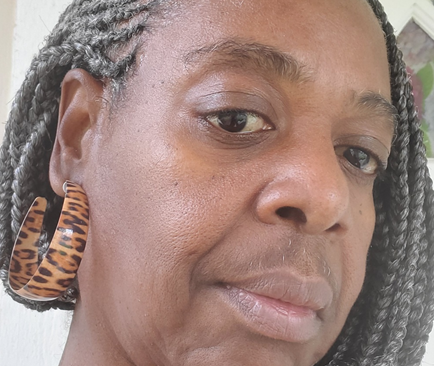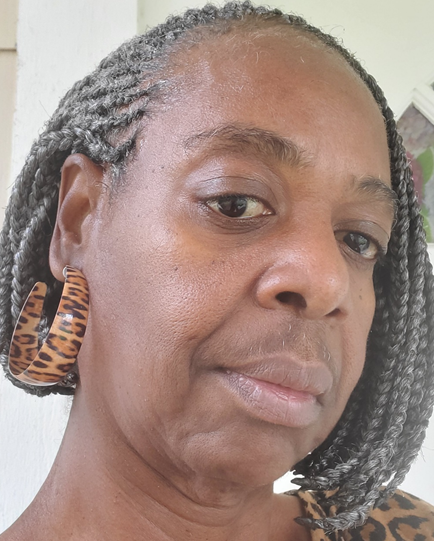
Black Sisters Testify: Live the Call To Be Authentically You
Nora Bradbury-Haehl
November 23, 2022
Sr. Sandra Helton entered her community, the School Sisters of Notre Dame, when she was in her early 30s. She already had two college degrees and had done post-graduate work. The child of a couple of generations of Baptist ministers, she was raised learning the Scriptures.
“From the time I could barely be seen. They’d stand you on the table to recite Bible verses,” she says.
Growing up as a PK (preacher’s kid), she came into religious life with an extremely strong prayer life. “I brought that with me. It’s not something I had to get when I got here,” she says.
She was attracted to life as a sister “because I had this call and I knew the type of service that God was calling me to could not happen in the Baptist Church.” As a convert to Catholicism. some people tell her she came in through the back door.
She says, “No. I came in through the door that God opened.”
As an African-American woman religious, Sr. Sandra’s vocation story, and her experience of life in a predominantly white religious community, is different from that of most sisters in the U.S. Out of 40,000 or so Catholic Sisters in the U.S. only about 400 of them are Black. The National Black Sisters’ Conference has 104 members.
In their September 2020 statement “Hold Up the Light” the NBSC declared, “We must hold up the Light of Christ against the sin of racism. We must speak the truth not only in love but we must speak the truth forthrightly about the complicit, systemic, and structural racism that continues to exist in the American Catholic Church today.”
For Sr. Sandra, living the countercultural witness of a Black Catholic Sister carries both challenges and graces.
“I think for me, being a Black woman in America today means that you basically live in a dual society. I live in a world where I have the norms that are set for the dominant culture. And so I have to follow those norms, even though that may not be the norm that I would typically go to within my own culture,” she says.
“Particularly here in American society, most of the norms are set by the dominant culture without reference to other cultures. … I get up every day and I have to think, ‘What position will I find myself in today?’ I have to always think twice. ‘OK, where am I? And what’s the situation here?’ … It’s a dual setting for me. Most people don’t have to get up and think like that, other than people of color. So it’s not that it’s something that I’m begrudging to do. It’s not something that I dwell on. But it’s an ‘is-ness’ that I have to be conscious of.”
Sr. Sandra gives the example of driving in St. Louis over 20 years ago.
“I was stopped by the police. I was told that the car didn’t belong to me because it belonged to the School Sisters of Notre Dame. I was told I stole the car because there are no Black Sisters. I was made to place my hands on the hood, all of these things that I know that would not have happened had it been someone else, particularly to a woman.”
When she communicates this disparity to white people – that her experience is that of being harassed, rather than protected, by police – she notes, “Some won’t even accept, nor do they understand. Some understand, but there’s always a little caveat, ‘Oh that was happening long ago. That doesn’t happen now.’ That totally is not correct. So there are all of these other things, excuses that come up. Their response is, ‘No, and it’s certainly not talking about me.’”
Conversely, when Sr. Sandra discusses religious life with young people of color, she gets questions that are highly attuned to these realities:
“Are you okay living with whites? That’s one of the questions that comes up a lot. The other one: Can be yourself? And I think the last thing, more importantly, is: Do you feel that what you’re doing is the best thing that you can do in order to help your people?”
“I speak to them of my real experience. I don’t sugarcoat anything,” she says. “I try to answer their questions as honestly as I possibly can.”
Sr. Sandra sees the outreach to young people, especially young people of color, as essential for women religious, that it’s not an attraction to the lifestyle of Sisters that is lacking, but simply the invitations are.
“There are younger people who are very serious about their faith walks and very serious about how they want to spend their lives in terms of their calls as well, and you know it may look different than most people who are in religious communities now,” she says.
While older sisters might question tattoos or other aspects of a young person’s lifestyle, Sr. Sandra counsels, “So what? Let’s go a little bit deeper than that, and it’s not about what you look at and see. It’s when you start getting to the heart, and the gut of who a person is.”
But the vocation to religious life is something Sr. Sandra cherishes and welcomes others to consider.
“It’s a wonderful lifestyle,” she says. “There’s nothing else that I would have done. I know that that’s what God wants me to do, and for whatever reason he’s chosen – and I said yes to it – that I live it out in this particular situation.”
In addition to being lived in the particular, it’s a call that must be lived with authenticity.
“You have to be who you are. No matter what, and even if it’s different,” says Sr. Sandra. “It doesn’t have to be popular. It doesn’t have to be what everybody else is doing. It doesn’t even have to be something your best friend or your family may like. But here’s the thing: It’s going to be where your call is, and that’s where you’re going to live your best life.”
Nora Bradbury-Haehl is the author of “The Twentysomething Handbook” and “The Freshman Survival Guide.”








